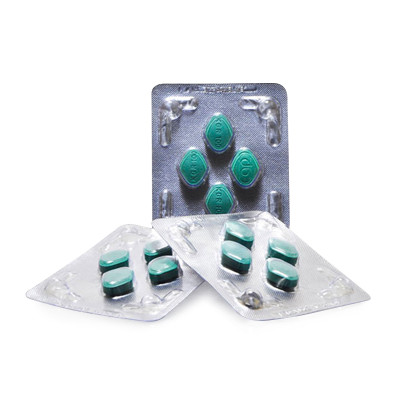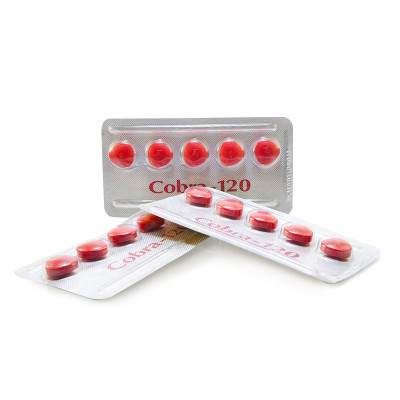Erection problems are an issue that affects not only men but also their partners.
Many women ask themselves: How can I help my partner feel better and at the same time maintain a healthy relationship? This article offers practical advice and tips on how to approach the issue with sensitivity and effectiveness:
- How to talk to your partner about erection problems in a supportive way
- Professional help and treatment options
- What to do if your partner refuses help
- Conclusion
- Frequently asked questions about erectile dysfunction (FAQ)
How to Talk to your Partner about Erection Problems in a Supportive Way
Talking about erection problems can be uncomfortable for many couples. Men often feel ashamed or fear they have failed, while women may worry about hurting their partner's feelings. Nevertheless, an open conversation is key to resolving the situation and strengthening the relationship. It’s important to approach this topic with respect, empathy, and support.
Here are the steps to do it:
Choose the Right Time and Place
Not every moment is suitable for bringing up this topic. Your partner may feel uncomfortable if it comes up at the wrong time. The best time for such a conversation is when you are both in a relaxed environment with enough privacy.
- Avoid discussing the issue in moments of frustration or right after an unsuccessful attempt at intimacy.
- Try bringing it up during a walk, over dinner, or in a calm moment at home.
Be Supportive, not Critical
Many men perceive erection problems as a personal failure, which can lead them to withdraw emotionally. That’s why it’s important that the conversation doesn’t come across as criticism or blame.
- Instead of asking, “Why is this happening?”, try saying, “What can we do together to help you feel better?”
- Show that you don’t see this as just his problem but as something you want to address together.
- Reassure him that his worth is not defined solely by his sexual performance.
Express that you Care about your Partner
Men with erectile dysfunction may worry about losing their partner’s attraction. That’s why it’s essential to make it clear that you still see him as attractive and loved.
- Use reassuring words like, “I love you not just because of our sex life.”
- Remind him that his value in the relationship isn’t limited to the physical aspect.
- Gentle physical affection, such as hugs or touches, can help ease his worries.
Let him Speak and Respect his Pace
Not every man is ready to talk about his problems right away. If he doesn’t feel comfortable, don’t pressure him.
- If he doesn't want to talk immediately, give him space, but let him know you're there for him.
- Allow him to express his feelings without interrupting or trying to offer an instant solution.
- Be patient – an open conversation may only happen after several attempts.
Consider Professional Help Together
If the issue persists and starts affecting your relationship, it’s a good idea to consider consulting a specialist. Many men are afraid to see a doctor, but you can help him overcome that fear.
- You can offer to go with him to the first appointment.
- Emphasize that erectile dysfunction is often just a symptom of another health issue that can be treated.
- Help him find a specialist or read about treatment options together.
The way we approach open and sensitive communication in a relationship makes all the difference. When a man feels supported and understood, he’s much more likely to be willing to address the situation and look for appropriate solutions.
Professional Help and Treatment Options
If lifestyle changes don’t bring the desired results or if erectile dysfunction is persistent, it’s worth considering professional help and pharmacological solutions.
Consulting a Specialist
Visiting a urologist or sexologist can help determine the exact cause of the problem. The doctor will recommend appropriate treatment based on individual factors such as health condition, age, or the specific cause of the erectile dysfunction.
However, it’s important to keep in mind that for many men, this topic is extremely sensitive, and seeing a doctor can be a psychological barrier. If your partner refuses professional help, don’t force him into it. Pressure or criticism can make the situation worse and cause unnecessary stress.
Instead, offer your support so that he feels more comfortable when deciding on the next steps.
You can read more about what to expect during a urological exam in the article Erectile dysfunction issues and visiting the doctor.
Pharmacological Treatment
Erectile dysfunction is a well-treatable issue today, and pharmacological treatment offers effective solutions. The most well-known medications, such as Viagra and Cialis, have helped millions of men worldwide. However, generic alternatives—containing the same active ingredients as the originals but at a more affordable price—are becoming increasingly popular on the market. You can buy them without a prescription in our e-shop.
Most commonly used active ingredients:
- Sildenafil – Known for its effective action in dilating blood vessels and improving blood flow to the penis. It is found in original Viagra as well as in generic versions (Viagra generics), such as Kamagra 100, Kamagra Oral Jelly, or Cobra 120.
- Tadalafil – An active ingredient with a longer duration of effect (up to 48 hours), made famous by the product Cialis. Its generic alternatives are so-called Cialis generics – Vidalista 20, Tadalis SX, Vidalista CT.
- Vardenafil and Avanafil – Less well-known active ingredients that work similarly to sildenafil and tadalafil, but with a faster onset of action. The leading product here is Valif 20.
 |
Kamagra Oral Jelly 100 mg
In stock
|
from 24,00 € | Buy |
 |
Kamagra Original 100 mg
In stock
|
from 16,00 € | Buy |
 |
Vidalista 20 mg
In stock
|
from 21,00 € | Buy |
You can find more detailed information about the effects, benefits, and usage of each active ingredient in the article Medications for erectile dysfunction.
Psychotherapy and Couples Therapy
The cause of erectile dysfunction isn’t always physical – many men face this issue due to stress, anxiety, or relationship conflicts. If ED is caused by psychological factors, individual or couples therapy may be helpful. Working with a professional can help remove mental barriers and restore self-confidence.
What to do if your Partner Refuses Help
Sometimes a man may refuse to address erection issues, whether out of fear, shame, or the belief that the situation will resolve on its own. In such cases, it’s important to approach him with understanding and patience rather than pressure. How can you help?
- Respect his pace, but offer solutions
If he rejects professional help or lifestyle changes, gently introduce the available options and explain that this isn’t a personal failure, but a common health issue.
- Try small, non-intrusive steps
Focus together on small adjustments that may help – such as better diet, more physical activity, or improved sleep.
- Support his self-confidence
Instead of focusing on the problem, encourage him by emphasizing his strengths and what you appreciate about him.
- Take care of yourself, too
If the situation is affecting your own mental well-being, it’s perfectly okay to seek support (whether from loved ones or a professional) and not neglect your own needs.
Conclusion
Erection problems can be a sensitive topic, but with the right communication, partner support, and available treatment options, the situation can significantly improve. The key is to approach the issue with understanding, look for solutions together, and not be afraid to consider professional help or pharmacological options, including accessible generic medications.
If you want to learn more about causes, treatment options, or specific products, read our other blog articles where we cover this topic in more detail.
Frequently Asked Questions about Erectile Dysfunction (FAQ)
What causes erection problems?
Erection problems can be caused by various factors – from physical causes such as heart disease, diabetes, or hormonal imbalances, to psychological factors like stress or anxiety. An unhealthy lifestyle, excess weight, or lack of physical activity can also play a key role.
How can I talk to my partner about his problems in a sensitive way?
It’s important to create a safe environment and speak openly, without pressure or blame. Instead of asking, “Why is this happening?”, try supportive phrases like, “What can we do to help you feel better?” Give your partner space and time to talk about it.
Can lifestyle changes help with erection problems?
Yes, healthy lifestyle changes can significantly improve erections. It’s also recommended to reduce smoking, limit alcohol, and manage stress through relaxation techniques like meditation or yoga.
You can read more about lifestyle and erectile dysfunction in the articles Overweight and Erection Problems and Sleep and Erectile Dysfunction.
Which supplements can help?
Some natural supplements like L-arginine, ginseng, or maca can support blood flow and hormonal balance. There are also effective pharmacological solutions available on the market – read more about them in the article Medications for Erectile Dysfunction.
When should I seek professional help?
If erection problems persist for more than three months or have a negative impact on mental health and the relationship, it’s advisable to consult a doctor. A specialist can help determine the exact cause and recommend appropriate treatment.
What treatment options are available?
Treatment options include psychotherapy and pharmacological therapy. Shockwave therapy or injection treatments are also used.
Learn more about treatment options in the article Treatment and Correction of Erectile Disorders.
Author: Ava Williams













